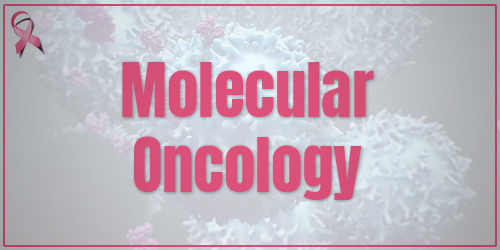Molecular oncology is a specialized field within cancer research and treatment that focuses on unraveling the intricate molecular mechanisms driving cancer development, progression, and response to treatment. By studying the genetic and molecular alterations that occur within cancer cells, researchers and clinicians in molecular oncology aim to identify targeted therapies and personalized treatment approaches for cancer patients.
Key Areas of Study in Molecular Oncology
Here are some key areas of study in molecular oncology:-
Genetic Alterations in Cancer Cells
Understanding the genetic changes that occur in cancer cells is fundamental to molecular oncology. Oncogenes, which promote cell growth and division, and tumor suppressor genes, which inhibit tumor formation, are often the focus of study. Mutations in these genes can lead to the uncontrolled growth and proliferation of cancer cells.
Molecular Profiling and Biomarkers
Molecular profiling techniques, such as next-generation sequencing (NGS) and gene expression profiling, are essential tools in molecular oncology. These techniques allow researchers to analyze the genetic makeup and gene expression patterns of tumors, identifying specific molecular signatures and biomarkers that can help in tumor classification, prognosis, and prediction of treatment response.
Targeted Therapies and Immunotherapy
A major breakthrough in molecular oncology is the development of targeted therapies that specifically target the molecular abnormalities present in cancer cells. These therapies, including small molecule inhibitors and monoclonal antibodies, have shown efficacy in treating various cancers with fewer side effects compared to traditional chemotherapy. Immunotherapy, which harnesses the immune system to target cancer cells, is another area of active research in molecular oncology.
Advancements and Applications in Molecular Oncology
Precision Medicine in Cancer Treatment
Precision medicine, also known as personalized medicine, is a cornerstone of molecular oncology. By identifying specific molecular targets or biomarkers in individual patients, clinicians can tailor treatment strategies to each patient's unique genetic profile and disease characteristics. This approach maximizes treatment efficacy while minimizing adverse effects.
Molecular Diagnostics and Therapeutic Monitoring
Molecular oncology plays a crucial role in cancer diagnosis and therapeutic monitoring. Molecular diagnostic tests, such as PCR, FISH, and IHC, are used to detect genetic mutations, gene rearrangements, and protein expression patterns in tumor samples. These tests aid in tumor classification, staging, and treatment selection, guiding clinicians in making informed decisions about patient care.
Research Frontiers and Future Directions
Continued advancements in molecular oncology, including the integration of artificial intelligence (AI) and machine learning, hold promise for further improving cancer outcomes. AI-driven approaches can analyze vast amounts of molecular data, identify novel biomarkers, and predict treatment responses, paving the way for more precise and effective cancer therapies. Additionally, ongoing research in molecular oncology aims to uncover new therapeutic targets, elucidate mechanisms of drug resistance, and explore innovative treatment modalities such as gene editing and cell-based therapies.
Conclusion: Transforming Cancer Care Through Molecular Insights
Molecular oncology has transformed our understanding of cancer biology and revolutionized cancer care by providing molecular insights into tumor biology, treatment response, and patient outcomes. Through interdisciplinary collaboration, technological innovations, and a deep understanding of cancer at the molecular level, molecular oncologists are driving forward precision medicine approaches that offer hope for improved survival and quality of life for cancer patients.














